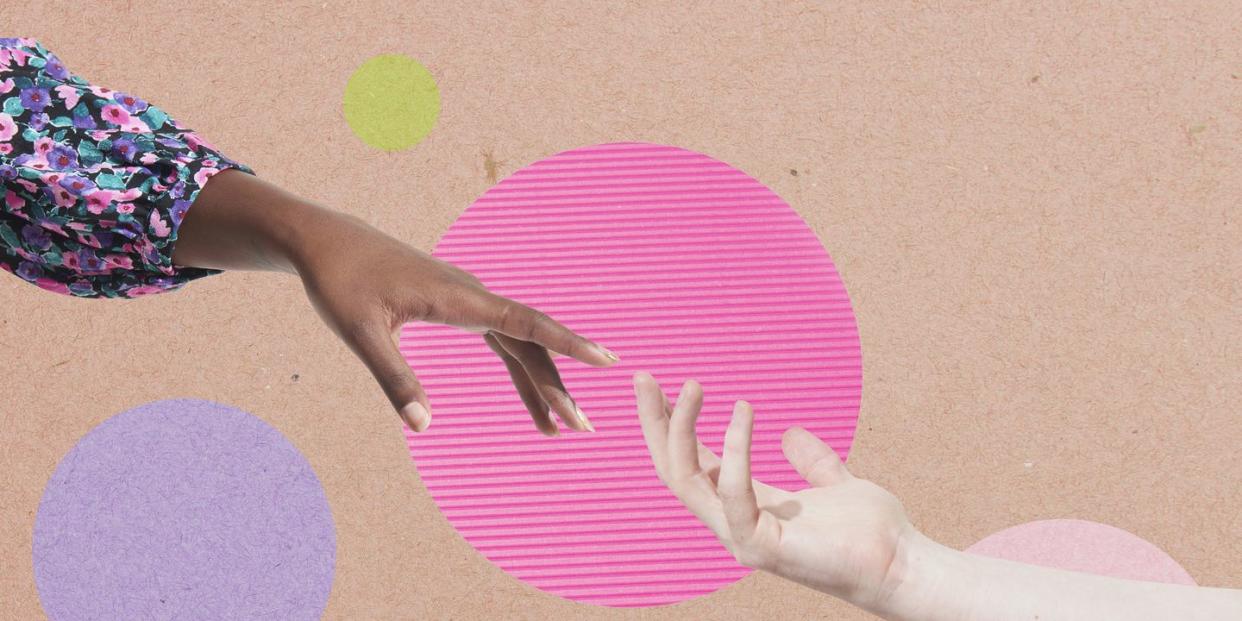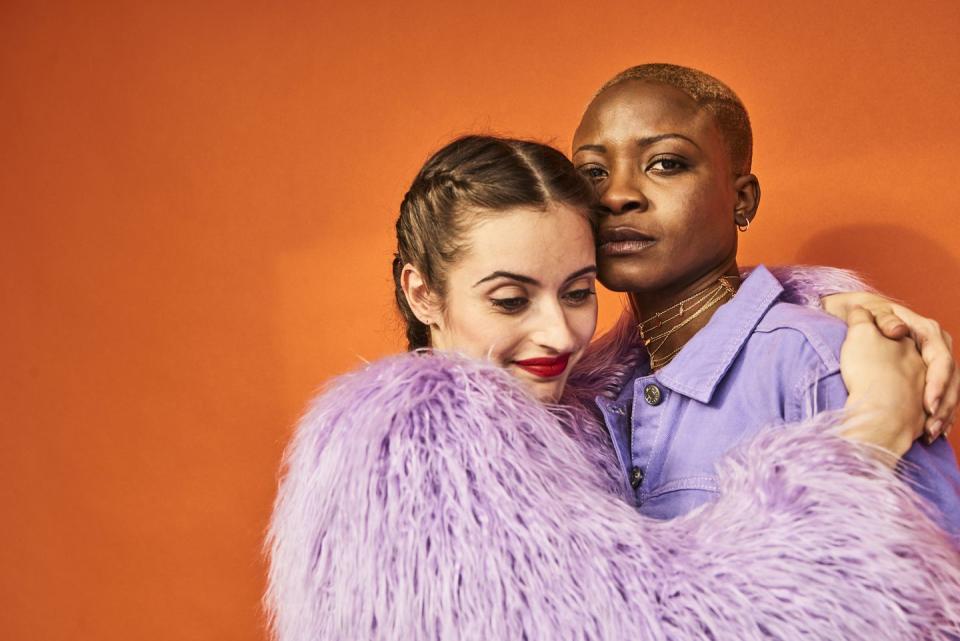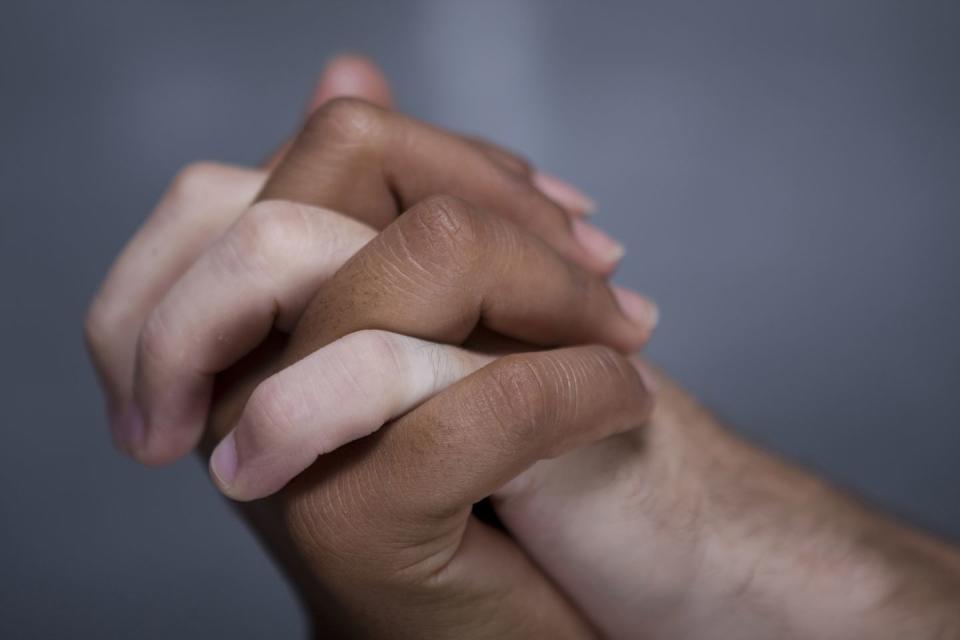The challenges interracial couples face and advice from an expert

A new report has highlighted the challenges of interracial dating faced by people in the UK, including prejudice from family and friends and fetishisation on dating apps. A key element of anti-racist dating is understanding the lived experiences of others, rejecting stereotypes and having ongoing and meaningful conversations about antiracism and allyship, so it’s important to examine and call out the racism at play in interracial dating.
The Mixed Up in Love report, released from dating app Inner Circle in collaboration with the authors of MIXED UP: Confessions of an Interracial Couple, surveyed over 1000 UK adults actively dating with a minimum of 100 respondents in the ethnic groups Asian, Black, Mixed, White British and White Other, and found that over a third (37%) of respondents have experienced racial micro aggressions or discrimination due to being a part of an interracial couple.
Respondents most commonly cited fearing a backlash or critical responses from those closest to them - their friends and family (49%) - as well as negative reactions and behaviours from colleagues (34%) while interracially dating.
Tineka Smith, journalist, racial equality advocate and author of MIXED UP: Confessions of an Interracial Couple says: “The data shouldn’t be shocking because unfortunately it’s a reality for many interracial couples.”
In her clinical practice, Dr Reenee Singh, Founding Director of the London Intercultural Couples Centre at The Child and Family Practice, sees this backlash as a key challenge for interracial couples. Other problems she cites as common are prejudice coming from a partner in an interracial couple, and the cultural and racial differences between partners leading to misunderstanding, miscommunication and not being on the same page about issues like dealing with extended family and parenting.
The report highlights the issue of microaggressions and racial profiling on dating apps, with three in 10 respondents having experienced this. Mixed race (white & Black Caribbean) and Black African daters are most likely to have experienced some form of discrimination while online dating.
Over a third of respondents (37%) have experienced racial fetishisation - the act of making someone an object of sexual desire based on an aspect of their racial identity. Of these, Asian daters have experienced this the most (56%), followed Black Caribbean (50%) respondents.
Despite these statistics, the report found willingness to talk about racism in interracial dating remains low - just four in 10 respondents (43%) would start a serious conversation about race once they had witnessed their partner experience racism firsthand.

“Being in an interracial couple myself, I felt there weren’t many resources out there providing support on how to discuss race in a relationship. Each couple is different, but it’s important to have these healthy discussions at an early stage. Not just because of what’s happening in the news, but ultimately to build an honest and supportive relationship with one another,” says Tineka Smith.
“The fact is that race is an integral part of our human identity and if your relationship is going to work, then it’s absolutely vital to understand each other’s experience and point of view on all aspects of racism.”
Dr Singh agrees it’s crucial these conversations are being had, and for white partners in interracial relationships to acknowledge their partner’s experience of racism without dismissing or making excuses.

“Some of these topics can be so difficult to talk about and being able to create a context where partners can face each other and talk without feeling that the other person isn’t on their side - for the other person to feel like an ally, [is so important],” she says.
Dr Singh adds that this kind of conversation should be happening whether it’s reflecting on overt or insidious forms of racism.
“Minority ethnic people in interracial relationships can pick up on things that are much more insidious and I think you should be able to speak to your partner, without being thought of as crazy or overreacting or over exaggerating. It’s trust that allows you to say to your partner: ‘I didn't like what one of your friends said because it felt slightly racist or slightly discriminatory to me’ and for them to be able to hear that,” she adds.

The report’s statistics paint a bleak picture, but Dr Singh points out that interracial couples are some of the strongest, because of the discrimination and obstacles they’ve overcome together.
“They often end up being much more resourceful and resilient and loving and committed than lots of other couples because they've had to cross this taboo, this barrier in order to be together.
“They also present us with a kind of microcosm of how race relations in society can be, because if one can live harmoniously with someone from a different so-called racial group, then that lends a lot of hope to everybody in society about how they can tolerate and celebrate differences.”
Cosmopolitan UK's current issue is out now and you can SUBSCRIBE HERE.
Like this article? Sign up to our newsletter to get more articles like this delivered straight to your inbox.
Follow Megan on Twitter
You Might Also Like

